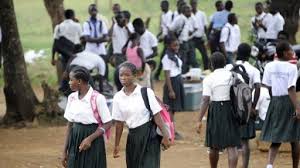The World Bank Group has provided $47 million for Liberia’s Improving Results In Secondary Education (IRISE) Project, APA can report Thursday.
According to the Country Manager of World Bank Liberia, Khwima Nthara, the IRISE Project seeks to address one of the most crucial pathways to poverty reduction and shared prosperity which is education.
Manager Nthara stressed that education empowers people to take advantage of various income earning opportunities and better equips them to deal with various other challenges in their lives.
The World Bank Boss made the statement Thursday at a program marking the launch of the IRISE project at a local Hotel in the Monrovia suburb of Sinkor.
He noted that education is one of the key foundations of human capital development and that Liberia should seized the opportunity to educate its youthful population.
He asserted that Liberia has made some progress in education in the past decade, as demonstrated by the doubling of student enrollment and increased levels of the teaching workforce, but noted that several challenges still remain.
Manager Nthara pointed out that access to senior secondary education is still low and inequitable, noting that only 15 girls out of every 100 girls who begin primary school advance to senior secondary school.
He also indicated that when students manage to progress to senior secondary school, retention and completion rates are still very low, especially among girls and the rural youth.
He said the school curriculum needs to be modernized to meet the labour market and the quality of education in terms of learning outcomes.
“This needs to change since senior secondary education provides a critical foundation for the development of skilled workers, people cannot be truly empowered if they have not attained more than primary education, and Liberia’s economic transformation will critically depend on having skilled workforce,” Manager Nthara added.
He pointed out that the IRISE project supports the Liberian government’s efforts to improve senior secondary education in the country.
The project focuses on improving equitable access, creating a conducive learning environment through the construction of classrooms, supporting girls to complete their education, upgrading teacher training, providing quality teaching training materials and developing digital skills of graduates.
He disclosed that the project will benefit approximately 140,000 students and 6,800 teachers in 156 public and community senior secondary schools and will provide scholarships to approximately 3,000 girls
TSS/as/APA


